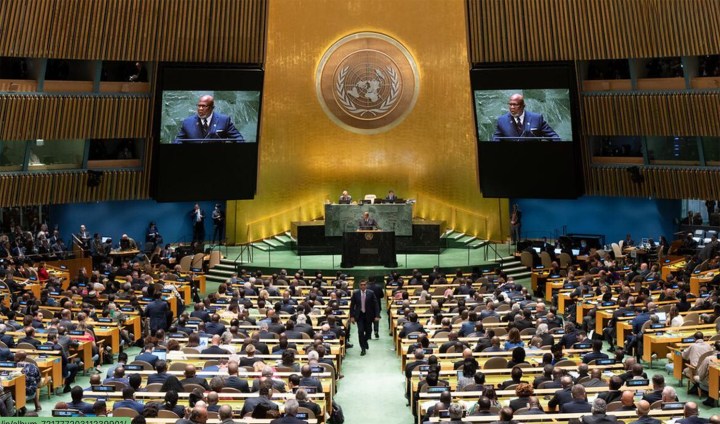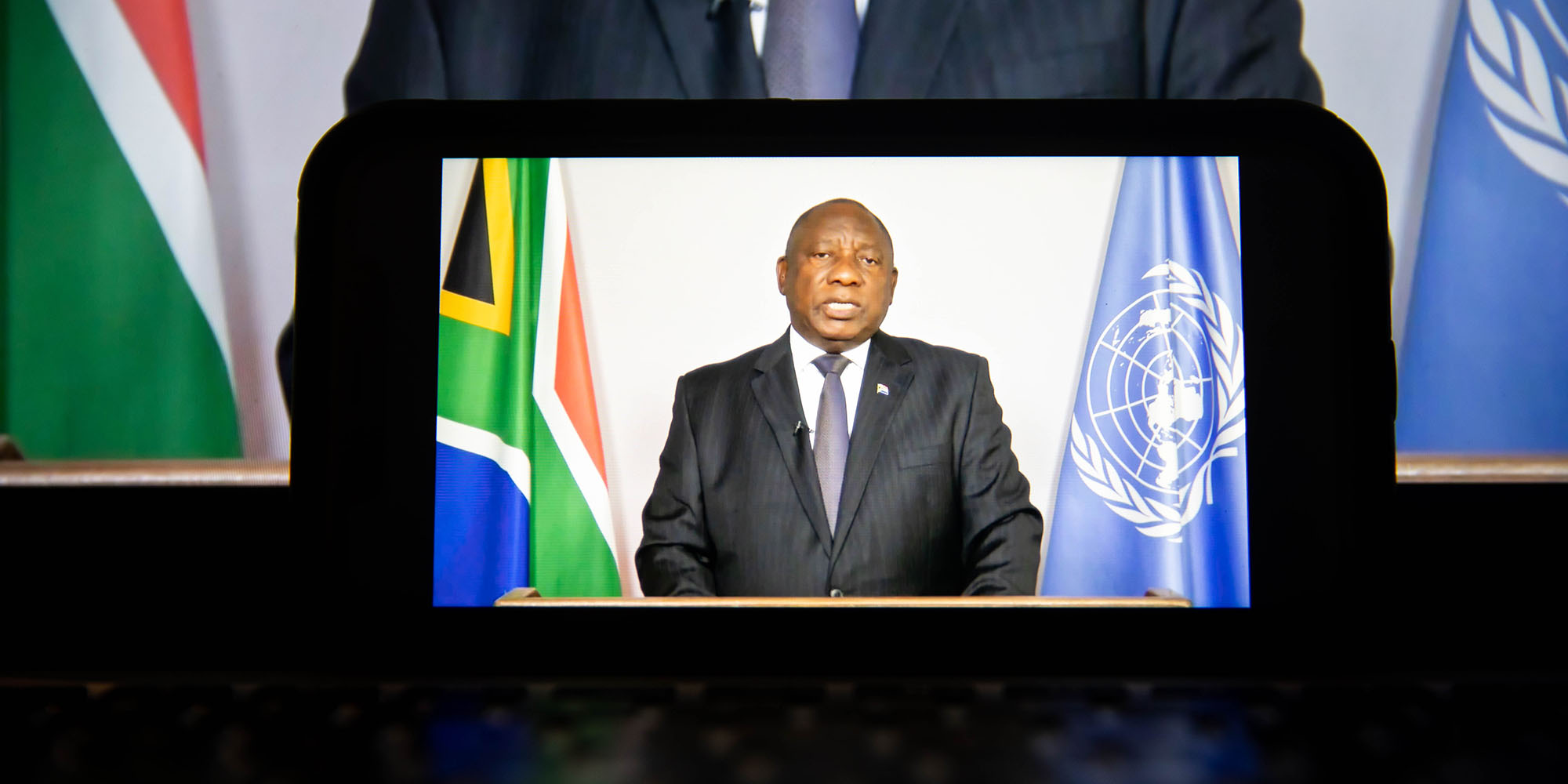ISS TODAY OP-ED
UN General Assembly annual debate shows deepening global divides with grievances at forefront

At this critical juncture in world affairs, the general debate should have featured more solutions and better leadership.
The general debate at the recent UN General Assembly 78th session concluded in much the same way as the many that preceded it — with significant global attention that trailed off shortly after it began.
The annual gathering is the preeminent multilateral stage for countries to showcase their commitments, achievements and visions for world governance. Like most big conferences, much of the real work is done behind the scenes. This year, over 2,000 bilateral meetings and 100 associated events were registered.
However, the general debate format too often leads to uninspired and predictable grandstanding by world leaders, who echo longstanding grievances in pre-prepared speeches devoid of solutions to global problems.
At this inflexion point in the evolution of the international order, this year’s general debate should have delivered more. It should have focused on how individual state leaders would engage across growing competition between major powers, and account for the shifting locus of control to the global south. Tangible solutions were required to accelerate progress on institutional reform (notably the UN Security Council) and achieve the Sustainable Development Goals.
To be fair, the UN Secretariat recognised this, giving the general debate the ambitious theme of: “Rebuilding trust and reigniting global solidarity: Accelerating action on the 2030 Agenda and its Sustainable Development Goals towards peace, prosperity, progress and sustainability for all”.
However, the Secretariat cannot deliver on this mandate without the political will of enough member states to drive a common agenda. This is vital to ensure solutions-oriented leadership to tackle climate change and the just transition, migration, unconstitutional changes in government, violent extremism, and fairer practices by international financial institutions, among others.
Despite the need for collective global leadership, the debate saw only one head of state represented from the UN Security Council’s five permanent members — United States (US) President Joe Biden. Only half of the G20 countries were represented by their presidents or prime ministers, and over 40% of African leaders were absent.
These numbers don’t vary significantly from prior years. But the fact remains that national leaders aren’t prioritising this annual gathering to mobilise the international community and steer global governance through a particularly charged geopolitical moment.
The remarks provided by many influential countries across traditional and emerging powers, were similarly uninspired. While many thematic issues were raised, they weren’t framed or problematised against the backdrop of prevailing geopolitical tensions and multilateral malaise. Rather, most leaders referred to these issues from their own narrow national vantage points — in which country-specific initiatives were showcased and grievances aired.
The United Kingdom’s (UK) Deputy Prime Minister Oliver Dowden focused on the challenges and opportunities presented by artificial intelligence. French Foreign Affairs Minister Catherine Colonna was more expansive. She drew attention to France’s commitments to greater development aid and financing, and its approaches to addressing conflict in Africa by supporting regional organisations like the Economic Community of West African States.
Read more in Daily Maverick: Ecowas moves to ratchet up diplomacy, take war in West Africa off the table
These two permanent Security Council members said little about how to overcome deep structural international divides and tensions.
Biden, in contrast, provided a more extensive appraisal of how to secure the future of the international institutional order, and the US’s role in doing so. Noting his country’s “duty to lead” at this critical juncture, Biden emphasised the US’s desire to forge new worldwide alliances, reform and strengthen global institutions, and double down on supporting democracy and human rights. He said these efforts weren’t intended to contain any country (specifically China).
US-Russia barbs
Little mention was made of the shifting locus of power towards the global south, how the US may or may not support a more multipolar order, or address its foreign policy contradictions raised by other leaders during the debate.
Unsurprisingly, the most pointed criticism of the US worldview came from Russian Foreign Minister Sergey Lavrov. He spent most of his time framing the international order as a struggle between a global minority (the US and its allies) who wield neo-colonial methods of subjugation over the majority to maintain domination in world affairs.
Chinese Vice-President Han Zheng was less antagonistic, providing a broad and set-standard Chinese perspective on ‘win-win’ cooperation for peace, security and development. Zheng did however criticise Western hegemony, in line with Lavrov’s view that the West intends to divide the world into hostile political blocs, so that the global majority falls in line and continues to play by its rules.
Other BRICS countries provided a more nuanced view of how to deal with geopolitical tensions, but were similarly scant on specific solutions or how they would shoulder this responsibility.
South Africa’s President Cyril Ramaphosa and Indian Foreign Minister Subrahmanyam Jaishankar highlighted greater, more meaningful dialogue as the only viable solution. They reiterated calls for global institutional reform and greater concessions by Western countries to create a more sustainable and equitable world. Both reaffirmed the independence of their foreign policies, and their intention to work across geopolitical divides.

President Cyril Ramaphosa speaks in a video during the United Nations General Assembly via live stream in New York, 23 September 2021. (Photo: Michael Nagle / Bloomberg via Getty Images)
Many of the world’s most influential countries were still largely speaking past each other, from their own myopic national viewpoints. The impression created was that little is being done to bridge deepening divides among competing worldviews.
As global grievances increase, few truly global solutions are being espoused by heads of state. Leaders must look beyond their narrow national interests and come up with principles and values to guide international cooperation over the coming years. Without that, progress on pressing challenges like climate change will be slow as we move into a more divided and volatile world. DM
Priyal Singh, Senior Researcher, Africa in the World, Institute for Security Studies (ISS) Pretoria.
First published by ISS Today.




















 Become an Insider
Become an Insider
Comments - Please login in order to comment.